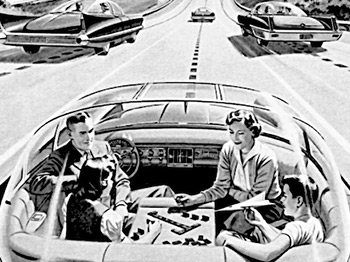In the beginning of this year I wrote an article in which I offered a brief assessment of connected and autonomous car technology, and the industry readiness to deploy them commercially. In the article, I suggested that although experimental self-driving cars are already cruising along California’s highways, it’s highly unlikely that self-driving cars will be roaming our streets for at least another 5 years. I expect that by 2020 we will see low speed self-driving cars or people-moving pods in limited-use applications such as company campuses, airport transfer services and retirement communities. Establishing dedicated paths and highway lanes for autonomous vehicles, as proposed, for example, in Germany, will accelerate the adoption and utilization of driverless cars.
Despite overly hyped headlines about artificial intelligence and machine learning software to navigate and control accident free vehicles, and, at the same time, actual impressive accomplishments of self-driving cars from Delphi, Waymo (Google) and others, the issue isn’t entirely a matter of algorithmic wizardry and technology maturity.
As we are getting ready to hand over some driving responsibility to our cars and learn to rely on advanced driver assistance systems (ADAS) technologies, new questions and concerns arise about the ability of automakers to equip vehicle control systems with the ability to make ethical decisions, and the willingness of society to accept the outcomes of such decisions.
The TU-Automotive Detroit 2016 event in June will be a great mid-year opportunity to assess the state of connected car technologies (and consumers’ appetite to adopt them). Expect to hear a mix of breathless statements about robotic cars, realistic assessments of technology and regulatory work in the works, and new mobility and transportation business models threatening to disrupt a century old status quo. And all of these will be shadowed by growing concerns about communication security and data privacy, and equally hyped car hacking stories.
See you in Detroit in June!



